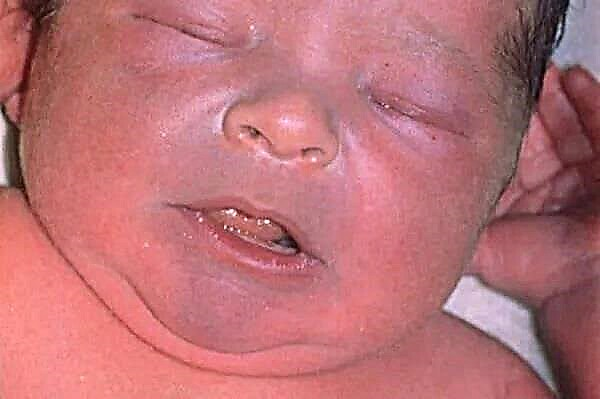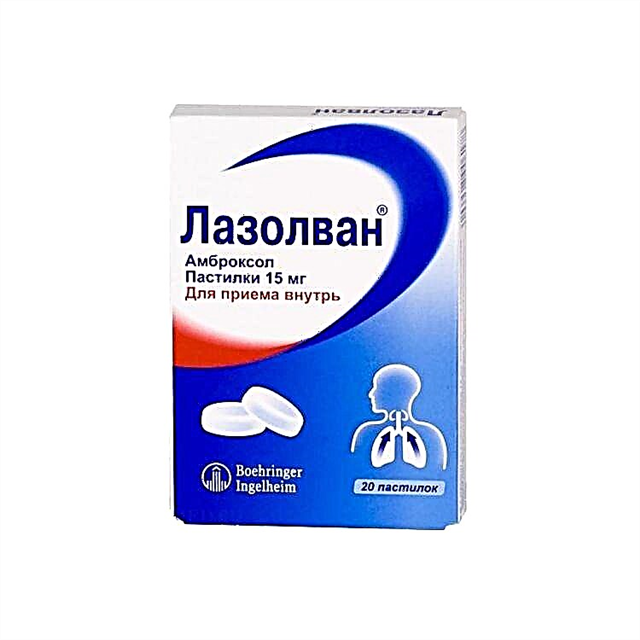When a newborn starts sticking out his tongue in the second, third months, drooling, waving his hands, he seems so funny. A three-month-old baby is certainly very cute, but he himself cannot report any problems. If a baby is drooling for 2 months and begins to bubble excessively, salivation is profuse, and the baby cannot do without a fist in the mouth, tries to rub the gums, bite and chew nearby objects, perhaps the cause of these symptoms is the disease.

The baby is drooling
Causes of saliva in a child
In newborn babies, salivation begins to appear at a month and a half, salivation can be very strong up to three months, and by a year it disappears. Both physiological and pathological factors can increase the separation of saliva. It makes no sense to run to the pediatrician every time you notice salivation, you should know what these moments can mean.
Important! Drooling in a 2 month old baby is quite physiological. At two months, this situation may not cease to appear even in moments of sleep, which causes discomfort to both parents and the baby.
A body fluid called saliva is produced by the salivary glands and exits into the mouth. There are 3 main glands involved in the production:
- submandibular;
- sublingual;
- parotid;
- and many others, smaller ones.
What is drooling for? If few of them are produced, then dryness, unpleasant tightness, and thirst are felt in the mouth.
Saliva purposes:
- wets the mucous surface;
- promotes the pronunciation of words and sounds, the last infant begins to pronounce already a month after birth;
- the perception of the taste of food is facilitated, since the piece of food dissolves, the taste buds of the tongue perceive the disintegrating molecules;
- promotes gluing of chewed food, later it is easier to swallow it, and the crumb will not constantly choke;
- the oral cavity is cleared of the remaining food;
- bactericidal and disinfecting effect;
- gums and teeth are protected from disease.
The composition of saliva in 98% is water, 2% are substances:
- mucin, which wets the food lump and sticks it together;
- lysozyme, which destroys microbial cells;
- enzymes amylase and maltase, which break down carbohydrates into saccharides.
Why is a two month old baby drooling? This is due to the development of the child's body. They appear almost immediately after birth, and by three months their production increases.
Note! If a 2 month old baby is drooling with bubbles, this does not always mean pathology. Since the secretion of the glands begins to work more actively, then salivation also increases.
Physiological causes of saliva:
- The swallowing reflex has not yet been formed. Despite the fact that the child has already been born, many of his systems and organs are still developing. It is still difficult for a baby to swallow at two months, so the oral cavity is abundantly supplied with saliva. This makes it easier for food to enter the esophagus and beyond. Since swallowing is still difficult, all the baby's saliva cannot be swallowed, as a result of which he lets them out in bubbles.
- Protective barrier. The baby, being born, learns a new, previously unknown world. He wants to know, see, discover, examine and taste everything. Everything is in the mouth: toys, diapers, fingers and toes. The immune system during this period is not yet working in full force, but only the moment of formation is passing, therefore, it cannot fight back all the bacteria in the body, saliva just copes with this.

The kid holds a teether in his mouth
- Teeth are coming through. During this period, the baby can be very capricious, trying to put his fist in his mouth, as with hunger, in order to somehow calm the discomfort. Teething begins in the period of 3-6 months, accompanied by fever, pain, itching in the gums, lethargy of the child. Salivating helps to disinfect the inflammatory focus and soothe the pain a little.

The first teeth are cut
Additional Information. The peak of salivation is between three and five months. At six months, the swallowing reflex is usually fully formed. In a year, the baby already begins to control swallowing, so bubbles and trickles of saliva do not end up on the chin.
Drooling bubbles
Excessive salivation with bubbles in babies is a natural process. It is not always correct to suspect this of a disease or an abnormality in development, since the situation may indicate the maturation of the salivary glands or the beginning of teething.

Drooling bubbles
Immediately after birth, the baby does not need saliva - he drinks his mother's milk or an artificial mixture, this is liquid food that does not require grinding.
In the process of growing up, salivation increases, by the end of the first month, the baby is increasingly blowing bubbles from the mouth. This suggests that the glands have begun active maturation, preparations are underway for the future digestion of food and its assimilation. Since the baby still does not know how to swallow well, he is unable to cope with such a flow of fluid, he cannot understand how to move the tongue, cheeks and throat to the required extent, so saliva comes out. The kid gives this pleasure, and he begins to play with her, making bubbles.
Note! As soon as the baby has learned to swallow, the period of teething may begin. The gums swell greatly, which is why saliva overproduction begins. A similar situation awaits at the time of the introduction of complementary foods. Here, salivation helps the baby get used to new products that are unfamiliar to the baby in consistency.
In some cases, blisters can indicate an allergic reaction in the baby. Allergic rhinitis is especially common. Then, in addition to salivation, you can see how the mucous membrane is swollen, the eyes are watering, the baby cries, sneezes, waving his hands. Rhinitis is caused by dust, flowering plants, and pet hair.
If profuse salivation is a disease
If a child is drooling profusely at 2 months, this may also mean hypersalivation (excessive salivation due to a disease). The symptomatology here is pronounced: drooling flows down the chin, breasts, there are too many of them, a rash and irritation appear around the mouth.
What are the reasons:
- Stomatitis. In the mouth, inflammation is found, ulcers are formed, aphthae on the mucous membrane. Saliva affects them and tries to neutralize the infection, its strong release is a consequence of the reaction to infection.
- Candidiasis is an infection caused by the Candida fungus. The baby can become infected from the mother, who is sick, at birth, because it passes through the birth canal. It is also common for babies to contract candidiasis from unclean pacifiers and bottles. A white, cheesy coating forms on the tongue, underneath are bleeding sores. Drooling with this disease is cloudy, abundant and smells unpleasant.

Candidiasis in a newborn
- CNS disorders and cerebral palsy. A baby with such a disease is prone to convulsions, partial or complete paralysis, the coordination of muscle contractions is impaired. The child cannot keep drooling in his mouth.
- Colds, SARS, respiratory diseases (bronchitis, asthma, tonsillitis, pneumonia). In addition to hypersalivation, there is a cough, a runny nose, and the temperature rises.
- Malfunction of the digestive system. At the same time, drool smells unpleasant and has a thick consistency.
- Endocrine system disorders. A constantly open mouth, a thickened tongue that does not fit in the oral cavity is added to hypersalivation, and other signs of developmental lag are also present.
- Neuralgia problems. In addition, the fontanelle pulsates strongly, the baby screams and starts crying, cannot hold the head in weight and lying on the tummy.
Additional Information. Changes in the amount of saliva can be caused by stress or nervous tension.
A doctor will help to identify the cause of hypersalivation. First of all, the baby should be referred to a pediatrician, he may refer to other specialists: a gastroenterologist, neurologist, dentist or endocrinologist.
How to help
If the baby is constantly drooling on the chin, cheeks, then, probably, irritation will begin to form, the skin will peel off, then small painful weeping sores will form.
How to ease the situation:
- Try to wipe up the saliva immediately, avoiding contact with the skin. Today it is possible to purchase hypoallergenic baby wipes. It is important to get your mouth wet, not rub.
- To protect your clothing, you need to hang a bib on it. You should not leave it at night, so that the baby does not suffocate and does not get entangled in the strings. The fabric changes as it gets wet.
- Putting the baby on the tummy - so saliva immediately flows down to the diaper on the bed, and does not accumulate on the skin. You can put on the baby's tummy at the end of the first month.
- When the teeth have begun to erupt, you can use special teethers, which the baby will chew with pleasure. These devices also reduce pain by gently massaging the gums.
- A nipple, a pacifier is an indispensable assistant not only for a calm sleep of the baby, but also for hypersalivation. It also helps you swallow.

Soother is a good helper for salivation
Important! If the baby is uncomfortable with profuse salivation, then you should not hesitate and consult a doctor. Both the abundant secretion of saliva and its lack should be alarming. Only a doctor will be able to accurately determine whether hypersalivation is the physiological norm for a particular baby or is it a consequence of an illness.
Folk remedies
If the baby has a lot of saliva at 2 months, and there are no serious reasons for that, you can resort to folk remedies:
- An extract or tincture of water pepper, which can be purchased at almost every pharmacy. A tablespoon of the tincture is diluted in a glass of water and a cotton napkin is dipped in the liquid. Then they wipe the baby's mouth after each feeding.

Tincture of water pepper
- Lagohilus is intoxicating. 20 gr. Plants are poured with 200 ml of boiling water, the mixture is heated in a water bath for 15 minutes, then cooled, filtered. It is also necessary to lubricate the oral cavity with a napkin soaked in the solution after each feeding.
- Viburnum berries. It is necessary to crush 2 tablespoons of berries in a mortar, then add 200 ml of boiling water, strain after 4 hours. You can wipe your mouth, you can drink it separately or add to the mixture.
- Tincture of shepherd's purse. Dilute 25 drops in 1/3 cup of water and wipe the baby's oral cavity.
- You can also wipe the baby's mouth with a decoction of chamomile, oak bark, vegetable oils.
Any such activities should be carried out after consulting your doctor. If folk remedies do not help, treatment requires additional diagnostics.
When to see a doctor
It is not always safe for a baby to drool and bubbles at 2 months. Often, the appearance of such a symptom can mean the appearance of a serious illness.
If the following symptoms are found, you should immediately consult a doctor:
- The oral mucosa is inflamed. If sores, wounds and erosion are visible on the tongue, then qualified treatment should be started immediately.
- The sockets on the gums become inflamed during teething.
- Helminthic invasions. Helminths excrete toxic substances and products of their vital activity into the body, in view of this, the secretion of saliva increases.
- Inflammatory processes of ENT organs: otitis media, sinusitis.
- Poisoning with toxic substances: mercury, lead, chemical pesticides.
- Traumatic injuries increase the secretion of the salivary glands and disrupt their activity.
- Infectious diseases. In this case, hypersalivation is of an auxiliary nature, thus the body gets rid of pathogenic microorganisms. Often, the temperature also rises, a runny nose, cough, redness in the throat appear.
- Conjunctivitis.
- Streptococcal sore throat.
- Epiglottitis - swelling of the epiglottis. An ambulance is called without fail.
- Convulsions.
With hypersalivation, anticholinergic drugs are prescribed:
- Atropine;
- Spasmolitin;
- Tifen;
- Diprofen.
Important! All medications should be taken with caution. If the remedy is chosen incorrectly, it will cause hypersalivation and more serious consequences. If surgery or radiation is required, then you should be aware that this can lead to deviations in the form of caries and facial asymmetry. All decisions about treatment are always taken deliberately, the most suitable method is chosen, based on the individual characteristics of the child and appropriateness.
In some cases, speech therapy massage is required for treatment, since hypersalivation makes it difficult to pronounce sounds.
If the cause of salivation is physiological, then it does not require medical intervention and goes away on its own, after a while. In the case of pathology, the primary disease should be identified, which was the result of hypersalivation, and a course of treatment should be carried out.



